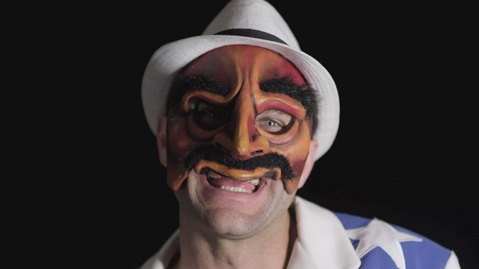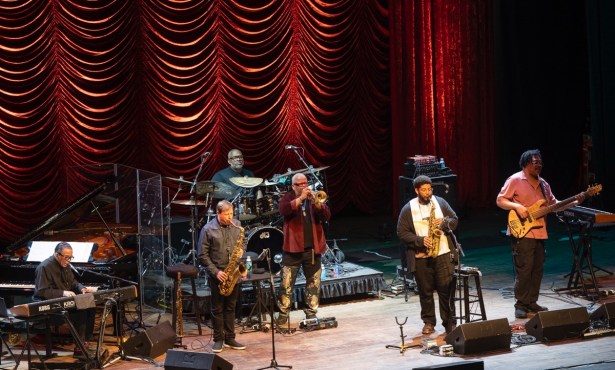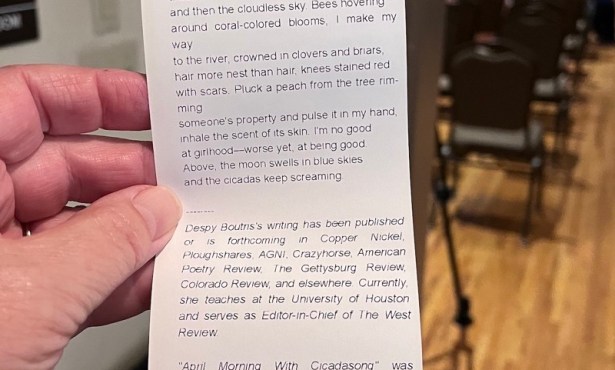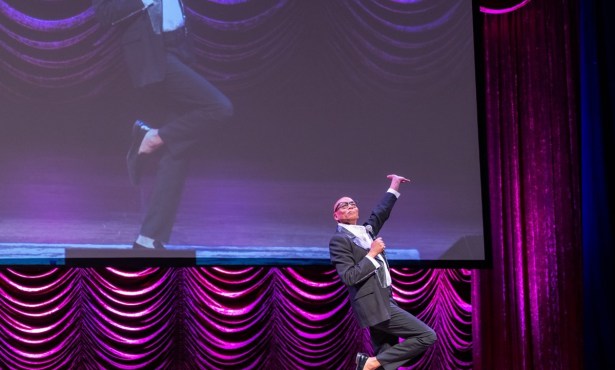‘Bizarre: A Circus Story’
Director Meg Pinsonneault

Meg Pinsonneault’s documentary focuses on circus act pioneer Master Lu Yi and the lives of the many entertainers and circus-performers his teachings have touched. The movie is a jubilant mix of interviews and beautifully artful circus pieces.
WORLD PREMIERE
What drew you to document Master Lu Yi?
Master Lu Yi’s energy is utterly infectious. He’s charming and charismatic. He’s tough and disciplined. Funny yet wise. Caring yet strict. Open-minded yet brutally honest. People say he’s young at heart. But it’s more than that. He’s young in spirit and mind as well. Even in his late 70s, he’s still continuing his artform and growing a strong circus community. Not to mention, he can still hold a two minute handstand with ease. Master Lu Yi is basically the Master Miagi of the circus world. But the real life version and WAY cooler.
What was the most surprising thing you learned about Master Lu Yi?
Master Lu Yi does NOT look his age. When he recounts his story in broken English, you think “How old is this guy?” You would never guess he endured great pain and sorrow as a child acrobat. You would never think he took major risks to flee his native country. The time he spent in prison. The time away from his infant daughters. He’s just so positive. That’s because he feels lucky and blessed for his time on Earth. Master Lu Yi is known as the Father of Modern Acrobatics and he’s quite well known in China. But you would never guess it. His daughters described him as a very unusual Chinese father. He’s loving, funny, and not afraid to show his emotions. I think that’s what makes him a unique and special circus coach. Perhaps that’s why so many people around the world flock to work with him. He pushes you, hard, but does it with love. I think this Master Lu Yi quote from the film pretty much sums it up: “If you love, you have lots of energy. If you love, you’re always happy. This is very important.”
What was the most surprising thing you learned about the circus and acrobatic communities?
Circus communities are very tight knit and supportive. But it wasn’t always that way. Circus performers are athletes and they can be extremely competitive. For the last few decades, Circus Center has worked to cultivate an atmosphere that’s competitive but positive and supportive as well. Along with advanced programs, they also focus heavily on kids and community involvement. For Master Lu Yi and Circus Center, it’s not all about training hardcore professionals. It’s about sharing the artform, spreading the sport, and getting as many people involved as possible. Without motivating the next generation of circus lovers, this ancient artform will cease to exist.
I really enjoyed the slow motion dance/movement/clown pieces in the documentary. What was it like to film them? How were the pieces selected?
One of my goals for this film was to show circus in a whole new way. So I thought slow motion would give great insight into the tiny little details of circus performing that makes it so beautiful. I utilized some of my favorite filming techniques to showcase these nuances, like powder, glitter, smoke, and performer equipment. The outcome is fun and dreamy, just like the circus.
The performer selection was based on many factors. Circus is a complex artform and includes many different disciplines. I wanted to make sure there was even and fair representation of circus arts. So we included acrobats, aerialists, clowns, and combinations of all of the above. We featured professionals, hobbyists, and outstanding youth performers too. As with any film set, selection was also heavily based on schedules and performer availability as well.
Is it your hope that this film may inspire greater respect and/or funding for circus and acrobatics in this country?
Absolutely! Circus is an incredibly old artform that dates back centries. It’s still a thriving industry in Europe, Canada, China, and other countries. Programs are government funded and some circus performers are considered national heroes. But that’s not the case in the US. Here, Circus is connected to Carnivals and “Carnies.” But they couldn’t be further apart and true circus artists are quick to point that out. This artform isn’t respected in the US, despite its rigorous, painful yet beautiful nature. There is very little government support, funding or otherwise, making it very difficult for American performers to compete on a global level. Both Master Lu Yi and Circus Center want to change that. So one of my main goals of the film was to help push that effort forward as well and circus artists gain the respect they deserve in the US.
Did you notice a generational difference in approach/philosophy between the older, more experienced clowns and the younger ones?
Truthfully, no. Every clown I met was awesome, hilarious, crazy, super smart, and totally different from the last. Age didn’t seem to matter. Clowning is all about being yourself and making people laugh. However, clowning is based around a rich history of clowning and theater arts. And like any theatrical art form, there are always those purists. But the the real consensus was to connect with the audience in a humanistic way, embrace your mistakes, and to spread ridiculous joy — no matter how weird or awkward that might be! Every clown has their own unique approach to clowning and to the world. So, needless to say, it made filming very interesting and memorable!
What were some of the funniest clown moments you experienced while on set?
Oh man. There were so many ridiculous moments! One favorite was working with two clown students, Leah and Alison, on our slow motion water fight scene. They came up with the idea of spitting water in each other’s mouths. So I was like, “Sure. Why not?” And then I made them do it three times. Each time, the spitting got more forceful with more water. The end result was really fun and kind of gross. I love it.
Another favorite was interviewing the late Joan Mankin, an incredible professional clown and renowned San Francisco actress with a very dirty mind. She told hilariously crass jokes for over an hour. She flirted with the sound guy until he blushed and left the room. She was brilliantly quick, silly, and nasty all at the same time. Wonderful. Another time, I was interviewing a group of a student clowns. I asked one particular clown a question about something I don’t remember. He responded with asking me on a date, just to see what I would do. Because that’s just what clowns do. My face turned red and we all laughed. I said “Okay. Okay, I get it…” You always have to be on your toes around the clowns!



